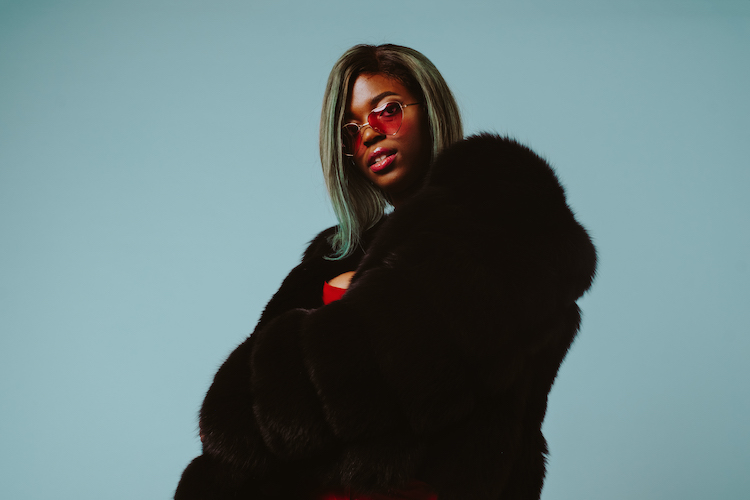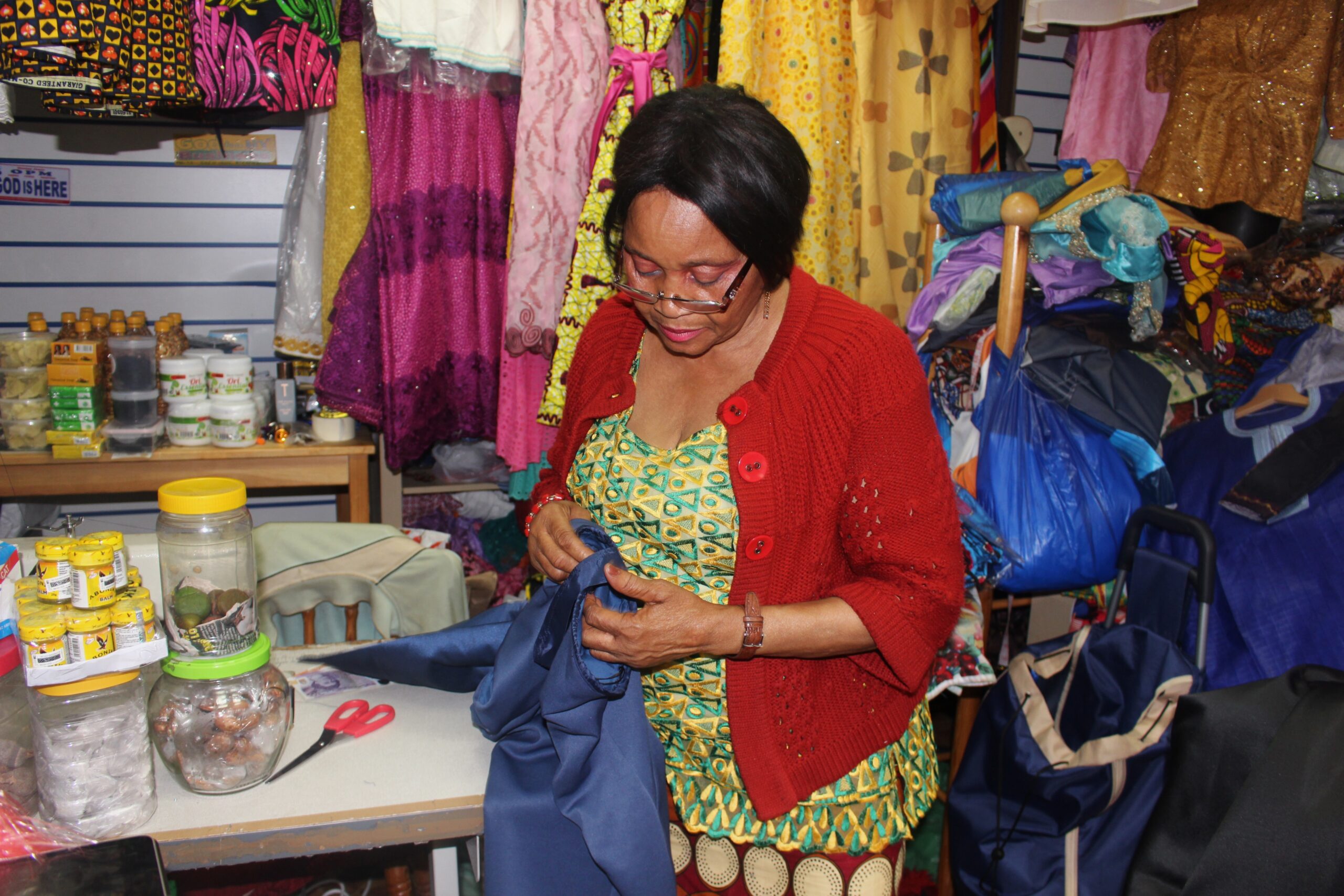
Kah-Lo knows her brand identity. The Nigerian dance artist was up into the wee hours of the night before speaking to me, dying a wig her trademark shade of luminous green. It’s a brand that works well, as paired with her rainbow coloured outfits and shimmering round sunglasses, Kah-Lo stands out. As she says herself, “I ain’t no basic bitch”.
Beyond the Kodak full colour image, you’d be hard-pressed to find someone who hasn’t torn it up to her breakthrough hit ‘Rinse & Repeat’, a thundering collaboration with UK house producer Riton, for which she received a Grammy nomination.
Kah-Lo, real name Faridah Seriki, was born in Lagos, Nigeria, grew up there, and spent time in London during her childhood. Despite making music from the tender age of 16, her parents couldn’t see how it could be a viable career, so she went to New York for college and got a job in marketing. The world of marketing wasn’t enough to keep her creatively satisfied. After sharing her early demos on Soundcloud she virtually bumped into Riton. The rest, she says, is history.
Since the duo struck gold with ‘Rinse & Repeat’ Kah-Lo and Riton continued to work together including on the colourful, afrobeats track ‘Money’, featuring Mr Eazi and Davido, and the syncopated electro soundtrack to a night out, ‘Fake ID’. On her working relationship with Riton, Kah-Lo says: “The thing with Henry, or Riton, is he’s always working, even on his off days, he’s always in the studio. I’d come over and he’d be like oh I made ten beats yesterday. He has such a deep understanding for house music and electronic music.”
Whether she’s talking, drinking rum and coke, or dancing up a storm at the club, Kah-Lo’s songs walk into your life like your friend who’s always living her best life and has a story to tell every time you see her.
She continues: “I’m coming at it from the complete opposite. I came from Nigeria first of all, grew up here [in Nigeria], then I lived in New York for seven, eight years. I have all those experiences so that helps with lyrics so sometimes we’ll just be having random banter over breakfast and he’s like we should put that in a song, and boom it becomes a song.”
Whether she’s talking, drinking rum and coke, or dancing up a storm at the club, Kah-Lo’s songs walk into your life like your friend who’s always living her best life and has a story to tell every time you see her.
Kah-Lo’s style of monotone rap singing is endearing; a technique that allows her to rap in her own dialect and use local colloquialisms of Nigeria. Though she started out as a singer, she found her way towards her style of rap through taking in the sounds of artists like MIA, Slick Rick, and P.M. Dawn. Stripped of artifice or pretence, her vocals are Kah-Lo’s way of taking pride in her Nigerian heritage and avoiding the usual trap of Americanisation.
When her unique style, complemented with Riton’s dexterity with a pulsating beat, resulted in a Grammy nomination, Kah-Lo was taken aback.
“I was thinking I’ll probably release a few albums and then after a few years get a Grammy nomination,” she says. “That was the plan in my head. For it to happen off the first single that was a collaboration, that was mind blowing.”
Kah-Lo admits that the pressure she felt after achieving a Grammy nomination so early on in her career affected her. “For it to happen off just the first thing it’s like ‘woah I need to step my game up’, but you don’t want to get caught up in your head too much because then you over think and that’s really not good as a creative. That affects your process. Being like ‘I’m trying to make the next hit’ whereas the next hit can be just something you scribble in your notebook mindlessly.”
“It’s not like I don’t want my music to be considered as afro house because it’s possible that I will make afro house in the future, but I don’t like specifically when people say I make afro house because I’m African”
The hits kept coming and as Kah-Lo began to receive recognition from the press, a certain term continued to linger around until it was all she could hear; afro house. A subgenre of house music, afro house is primarily based in South Africa and is a mix of tribal, deep, kwaito and soulful house music. Since Kah-Lo’s music is house but has no remnants of the styles that make afro house what it is, it’s safe to say observers saw a black girl making house music and clumsily attached the label to her name.
On the term, Kah-Lo says: “It’s not like I don’t want my music to be considered as afro house because it’s possible that I will make afro house in the future, but I don’t like specifically when people say I make afro house because I’m African.
“I just don’t like that term because its not factual, it’s just because I’m from such and such a background.”
The slapdash ways Western society often fetishises artists from around the world can be frustrating to witness. Despite what the misinformed critics may think, Kah-Lo won’t let it hold her back as she has big plans for 2018. A new single is expected as well as a mixtape with Riton and possibly more of her own solo music, which she says sounds more like SZA or The Weeknd. Whatever she does it’s hard to imagine people won’t be falling for her colourful style and fierce tunes. Either way, I hope her wig came out alright.
Kah-Lo’s latest single is Fake ID. Follow her on Facebook, Twitter and Instagram









